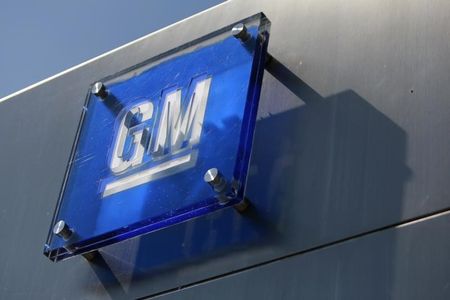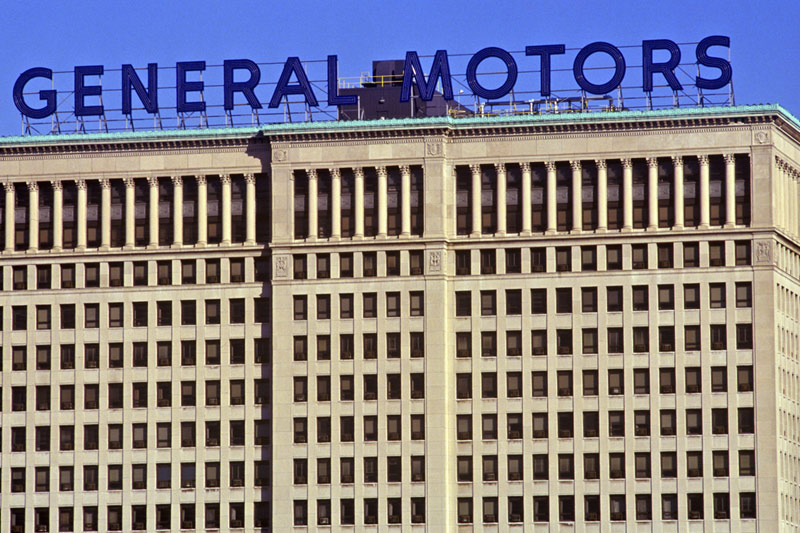By Nick Brown and Jessica Dye
NEW YORK (Reuters) - Roger Dean Gillispie, a former General Motors security guard, spent 20 years in an Ohio prison for rape until a federal court ordered him released in 2011. Now he wants to sue GM for allegedly helping to frame him, and he's getting support from an unlikely source: hedge funds.
Gillispie, who is waiting to see if he will face a new criminal trial, has petitioned the U.S. Bankruptcy Court in New York for permission to sue GM. The court, which is overseeing claims against the company in the wake of its 2009 Chapter 11 reorganization, must decide if Gillispie can seek damages from so-called New GM, the profitable company that emerged from bankruptcy, or must go after Old GM, which is a trust composed of limited assets to settle past claims against the carmaker.
He is making essentially the same argument as owners of older cars recalled in GM's ignition-switch debacle this year, who have filed more than 100 lawsuits seeking class action status and want permission from the bankruptcy court to pursue deep-pocketed New GM.
The legal odyssey showcases the unexpected alliances forged by GM's split into two legal entities. Under the 2009 bankruptcy agreement, New GM is largely shielded from liabilities arising before it was created. Gillispie and the car owners argue they could not have known about key facts central to their cases before the GM bankruptcy and should be able to sue the new company.
Hedge funds with claims on the Old GM assets also prefer new claimants direct their claims toward New GM.
A lawyer representing the switch plaintiffs in bankruptcy court declined to comment. Those plaintiffs have not weighed in on Gillispie's case, although they are separately arguing that New GM's attempts to foist their claims onto Old GM would violate their due-process rights, too.
GM spokesman Jim Cain said "we do not believe New GM is in any way responsible" for the events alleged by Gillispie, which would have occurred 18 years before New GM existed.
GM argued in court papers that if Gillispie or the switch plaintiffs have claims stemming from pre-2009 conduct, they cannot proceed against New GM.
If U.S. Bankruptcy Judge Robert Gerber agrees that Gillispie or the switch plaintiffs can sue the new company, GM could potentially be on the hook for tens or hundreds of millions of dollars, based on some plaintiffs' lawyers estimates of liability if they succeed in their suits over recalled cars made before 2009.
ENTER THE HEDGE FUNDS
The group of powerful Wall Street players hopes Gillispie and the switch plaintiffs can bring claims against New GM. This group includes Davidson Kempner Capital Management, Angelo Gordon & Co, Empyrean Capital Partners, and other investors that bought rights to the limited pool of Old GM payouts.
The funds worry that if Gillispie and the car owners are barred from suing New GM, they will be allowed to sue Old GM. In that case, the investors might not get as much from the Old GM trust.
Old GM's main assets, stock in the new company and warrants to buy stock, currently are worth about $9.25 billion, versus roughly $32 billion in claims, a recovery of about 29 cents on the dollar for trust creditors.
But the trust has already doled out many of the assets, leaving it only about $1.2 billion worth, according to a U.S. Securities & Exchange Commission filing in July. If new claimants, like Gillispie or the switch plaintiffs, are added to the pool, they could be entitled to a big chunk of what's left.
In court papers in August, Wilmington Trust Co, the administrator that represents the interests of Old GM stakeholders, said Gillispie's "due process rights would be violated" if he cannot sue New GM. The group that includes Davidson Kempner and Angelo Gordon later wrote a letter to the court backing Wilmington's position.
Wilmington Trust also described the stakes: adding new claimants to the Old GM pool would "open the floodgates" to a "deluge" of new claims, and "impair the rights and expectations" of current stakeholders, it said.
Lawyers for Gillispie, Wilmington Trust, and the hedge fund group declined to comment beyond court filings.
TWENTY YEARS IN PRISON
Gillispie's journey through the American legal system has spanned nearly a quarter century. In 1988, when Gillispie was a security guard for GM in Dayton, Ohio, police received three reports of rape involving forced oral sex.
In court filings, Gillispie said his former boss, a GM security officer and part-time auxiliary police officer, raised Gillispie as a possible suspect in the rapes to local police, withheld evidence and testified against him, all out of an allegedly deep malice toward Gillispie.
The ex-boss has responded that he simply identified Gillispie to police as a possible suspect and later testified to that effect in court.
A jury convicted Gillispie of rape, kidnapping, gross sexual imposition and aggravated robbery, but Gillispie maintained his innocence, and his case was taken up by the Ohio Innocence Project, which argued that he did not get a fair trial.
In 2011 and 2012, Ohio federal and state courts agreed, citing evidence that suggested Gillispie did not fit victims' description of the attacker and noting a dearth of physical evidence linking him to the crimes.
Prosecutors have appealed part of the federal court ruling, and are opposing Gillispie's motion to dismiss the criminal indictment in state court. While Gillispie waits to hear whether he will be tried again, he is free on bail.
In the meantime, he's lodged a civil-rights lawsuit against the Ohio town and county that investigated him, some of its police officers and crime-lab employees, his former GM supervisor and several co-workers, accusing them all of conspiring to frame him.
Also named as a defendant in the lawsuit is New GM. While civil rights claims are more commonly brought against governments and public officials, it is not unprecedented to bring them against private companies, particularly when the claims concern security guards or others who function as a kind of private police.
The defendants have denied the allegations in court filings and are seeking to dismiss the case.

Whether Gillispie and the switch plaintiffs can sue new GM is the decision of Bankruptcy Judge Gerber. He is not expected to rule on their motions for a few months.
(Reporting by Nick Brown and Jessica Dye; Editing by Amy Stevens and Peter Henderson)
